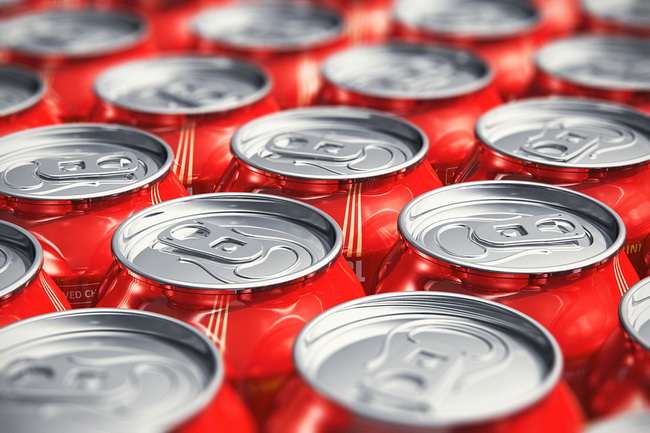- Make It Yourself Lavender Heart-Shaped Bath Bombs!
- 20 Things You Never Knew About “Down There”
- 12 Best Foods For Those Suffering From Arthritis Pain
- 12 Personal Hygiene Mistakes Almost Everyone Makes (Mom Never Told You About #4!)
- 15 Medicinal Plants And Herbs From The Cherokee People
- 12 Mind-Blowing Benefits Of Drinking Coconut Water During Pregnancy
- 12 Outstanding Winter Foods That Won’t Fatten You Up Like A Christmas Turkey
The Undisputable Connection Between Cancer And Sodas

Photo credit: bigstock.com
Interestingly enough, just before these tests results were published, Nestle announced that they were refusing the usage of artificial flavors and colors in their products. That is certainly a step in the right direction.
A law recently passed in California says that labels must clearly inform their customers of carcinogenic compounds in their sodas. Isn’t it funny how once this law was passed, all brands of soda reduced the amount of 4-Mel in their sodas to avoid this label? The 29 microgram limit has been established, but why put any 4-Methylimidazole in a soda at all? Is there any good reason why consumers should be exposed to a cancer-causing agent simply to color something brown?
It’s also interesting to note that if a cola in California has more than the 29 micrograms of 4-Mel, it must be labeled. The law says it must say something along the lines of “contains cancer-causing compounds.” If you live in California, check out some of those labels. Several brands were found to simply say “May contain caramel coloring.” That doesn’t sound scary enough to keep anyone, let alone teenagers, away from these chemicals.
It’s not just 4-Mel that causes cancer, and it isn’t just this one study linking sodas to cancer. Georgetown University Medical Center in Washington, D.C, published a study in the journal Cancer Epidemiology, Biomarkers & Prevention (a journal of the American Association for Cancer Research) in 2010 which showed that those who drank two or more sodas each week had an 87 percent increased risk of pancreatic cancer when compared to those who did not drink sodas.
Of course, the beverage industry objected to this study, insisting that it was flawed — but that is to be expected.
Pancreatic cancer was diagnosed in 42,000 American in 2009 with more than 35,000 deaths occurring among that group.
This study involved more than 60,000 women and men who attended the Singapore Chinese Health Study in 1993. This study continued for more than 14 years, looking at diets and who was diagnosed with what type of cancer.
All subjects were quizzed about their food intake, including water, fruit juices, and sodas. Although no one asked specifically about whether or not subjects were drinking diet sodas, no one mentioned that they were drinking diet sodas. At that time, diet sodas in Singapore were very uncommon, so it is fairly safe to assume that the sodas people were saying that they drinking were regular, sugary colas.
Out of these 60,000 subjects, there were 140 cases of pancreatic cancer. Researchers divided these subjects into three groups: Those who drank two or more sodas each week, less than two sodas each week, and no soda consumption at all.
Those who consumed more than two sodas each week (the average soda consumption was actually five per week) had an 87 percent greater risk of developing pancreatic cancer.
There was no link found when they divided these subjects by their juice consumption.
This study also adjusted for other risk factors, including smoking, diabetes, weight, and age. The risk for this type of cancer did increase with age, but that was the only change noted.
Scientists believe that it is the high level of sugar in soft drinks that causes cancer. Sugar increases the insulin level in the body, which is believed to contribute to the growth of pancreatic cancer cells. Researchers believe that this increase in insulin production is what might be the leading factor in the development of pancreatic cancer.
As expected, the American Beverage Association filed a statement saying that you can be a healthy person and still enjoy soft drinks.
These are not, by any means, the only studies that show a link between cancer and sodas.
Continue to Page 3
































